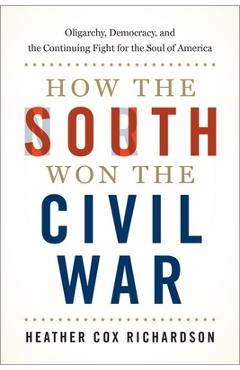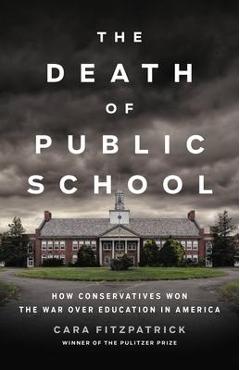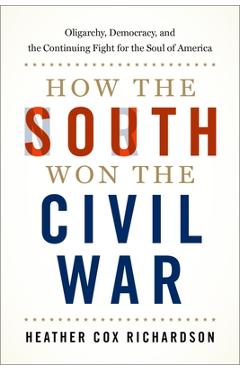How America Won World War I, Hardcover/Alan Axelrod

Detalii How America Won World War
elefant.ro
101 Lei
122 Lei
Carte straina
Lyons Press
How America Won World War - Disponibil la elefant.ro
Pe YEO găsești How America Won World War de la Lyons Press, în categoria Carte straina.
Indiferent de nevoile tale, How America Won World War I, Hardcover/Alan Axelrod din categoria Carte straina îți poate aduce un echilibru perfect între calitate și preț, cu avantaje practice și moderne.
Caracteristici și Avantaje ale produsului How America Won World War
- Departament: gaming-carti-birotica
- Ideal pentru pasionații de jocuri, birotică și distracție online.
Preț: 101 Lei
Caracteristicile produsului How America Won World War
- Brand: Lyons Press
- Categoria: Carte straina
- Magazin: elefant.ro
- Ultima actualizare: 14-03-2020 23:01:09
Comandă How America Won World War Online, Simplu și Rapid
Prin intermediul platformei YEO, poți comanda How America Won World War de la elefant.ro rapid și în siguranță. Bucură-te de o experiență de cumpărături online optimizată și descoperă cele mai bune oferte actualizate constant.
Descriere magazin:
Immediately after the armistice was signed in November, 1918, an American journalist asked Paul von Hindenburg who won the war against Germany. He was the chief of the German General Staff, co-architect with Erich Ludendorff of Germany\'s Eastern Front victories and its nearly war-winning Western Front offensives, and he did not hesitate in his answer. "The American infantry," he said. He made it even more specific, telling the reporter that the final death blow for Germany was delivered by "the American infantry in the Argonne." The British and the French often denigrated the American contribution to the war, but they had begged for US entry into the conflict, and their stake in America\'s victory was, if anything, even greater than that of the United States itself. But How America Won World War I will not litigate the points of view of Britain and France. The book will accepts as gospel the assessment of the top German leader whose job it had been to oppose the Americans directly - that the American infantry won the war - and this book will tell how the American infantry did it. About the Author: Alan Axelrod, Ph. D., is the author of many books on leadership, history, and military history, including Miracle at Belleau Wood (Lyons Press, 2018), The Battle of the Somme (Lyons Press, 2016), The Battle of Verdun (Lyons Press, 2016), and Selling the Great War: The Making of American Propaganda (Palgrave Macmillan, 2009). He has taught at Lake Forest College (Lake Forest, IL) and Furman University (Greenville, SC) and was most recently a creative consultant and on-screen commentator for The Great War, on the PBS American Experience television series.

Produse asemănătoare

White House Wild Child: How Alice Roosevelt Broke All the Rules and Won the Heart of America - Shelley Fraser Mickle
![]() libris.ro
libris.ro
Actualizat in 28/10/2025
156.19 Lei

How the South Won the Civil War: Oligarchy, Democracy, and the Continuing Fight for the Soul of America - Heather Cox Richardson
![]() libris.ro
libris.ro
Actualizat in 28/10/2025
178.51 Lei

The Death of Public School: How Conservatives Won the War Over Education in America - Cara Fitzpatrick
![]() libris.ro
libris.ro
Actualizat in 28/10/2025
178.56 Lei

How the South Won the Civil War: Oligarchy, Democracy, and the Continuing Fight for the Soul of America - Heather Cox Richardson
![]() libris.ro
libris.ro
Actualizat in 28/10/2025
143.15 Lei

What\'s the Matter with Kansas?: How Conservatives Won the Heart of America - Thomas Frank
![]() libris.ro
libris.ro
Actualizat in 28/10/2025
122.34 Lei

The Liberation Line: The Untold Story of How American Engineering and Ingenuity Won World War II - Christian Wolmar
![]() libris.ro
libris.ro
Actualizat in 28/10/2025
189.72 Lei
Produse marca Lyons Press

SEC Football\'s Greatest Games: The Legendary Players, Last-Minute Prayers, and Championship Moments, Paperback/Alex Martin Smith
![]() elefant.ro
elefant.ro
Actualizat in 28/10/2025
108.99 Lei

The Official U.S. Army Tactics Field Manual, Paperback/Department of the Army
![]() elefant.ro
elefant.ro
Actualizat in 28/10/2025
122.99 Lei

Brothers in Valor: Battlefield Stories of the 89 African Americans Awarded the Medal of Honor, Paperback/Robert F. Jefferson Jr
![]() elefant.ro
elefant.ro
Actualizat in 28/10/2025
108.99 Lei

Stealing the Show: A History of Art and Crime in Six Thefts, Hardcover/John Barelli
![]() elefant.ro
elefant.ro
Actualizat in 28/10/2025
144.99 Lei

